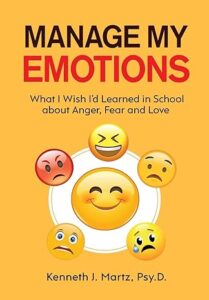Challenging Behavior
This topical guide will introduce you to important books, videos, and information resources available from the EI Clearinghouse and other sources. Contact us via online form or by phone (1-877-275-3227) to request a resource listed below (or ask your local public librarian). Note that some videos may be viewed online, and journal titles will take you to the publisher’s homepage.
Table of Contents

EIC Resources
No resources have been added to this section yet. However, new resources are added frequently!Books
Through engaging illustrations and a storybook format, 1-2-3 Magic for Kids lays out the program in a way that’s relatable for kids of all ages.
This book gives parents information on how to control obnoxious behavior, encourage good behavior, and strengthen relationships with your children. Advice and real life stories are included in this book.
This book covers topics like helping families address challenging behavior, using positive support in early intervention, and much more. This could be used by parents or educators.
Specially developed to complement ASQ:SE-2, this essential resource makes it a snap to share practical social-emotional strategies with parents of children from birth to age 6. (cd-rom included)
This book examines the root causes of tantrums and anger, including anxiety, depression, and sensory issues, and provides a variety of methods to strengthen child bonds and combat behavior issues, all while gaining a better understanding of the child.
This book covers many topics like how to respond to challenging behavior, why children behave certain ways, etc.
This friendly and positive alphabet book gives children “feelings words,” and explores the idea that while some feelings are more comfortable than others, all are natural and important. This book invites children to share, express, and embrace their emotions.
This book offers strategies to help caregivers teach the littlest children pro-social behaviors and techniques to deal in developmentally appropriate ways with challenging behaviors such as biting and hitting. Learn how infants and toddlers develop socially and emotionally and discover ideas for nurturing self-regulation, skills for joining in play, expressing needs and emotions, conflict-resolution skills and more.
Filled with ideas to try today, Gentle Discipline helps parents of toddlers as well as school-age kids embrace a new, more enlightened way to help kids listen, learn and grow.
A sense of belonging is a basic human need. This friendly, affirming book helps toddlers see that they have places where they feel loved and where they talk, play, share–and help others belong, too.
This reassuring book helps toddlers name their feelings and see that their actions affect how they feel. Includes tips and activities for helping children understand emotions.
This book teaches frustrated, stressed-out parents that selectively ignoring certain behaviors can actually inspire positive changes in their kids. Combining highly effective strategies with time-tested approaches, she teaches parents when to selectively look the other way to withdraw reinforcement for undesirable behaviors.
Audiobook on 5 CDs.
Also available as an eBook.
This book depicts the many ways we experience the universal bond of love, which carries us from the day we are born throughout the years of our childhood and beyond. With a lyrical text that’s soothing and inspiring, this tender tale is a new classic that will resonate with readers of every age.

Manage My Emotions for Children In the book Manage Emotions for Children, written by the expert in emotional intelligence for children Dr. Kenneth Martz has accompanied children and families for 25 years in managing their emotions as well as providing communication tools to families.
Raising happy, compassionate, and responsible children requires both love and limits. This book weaves together ancient wisdom and modern science to provide new perspectives on parenting and discipline.
Also available as an audiobook on 6 CDs.
This book provides valuable tools to help nurture relationships, measure progress, reduce child stress, address challenging behaviors and promote self-regulation. Full of clear, straightforward steps, guiding principles and useful techniques backed by neuroscience and research, this book provides practical methods so that all childhood providers can better support the social and emotional lives of children and families.
Young children are better able to cope with their ever-changing world, overcome obstacles, and grow into emotionally healthy adults if they are provided opportunities to build their self-awareness and confidence. Help children appreciate themselves and others, explore relationships, and develop coping mechanisms for dealing with change and difficult events in their lives as they learn about self-esteem, emotions and feelings, family, friends, and changes in life.
Also available as an eBook
This book provides teachers with the tools they need to help children become socially and emotionally healthy for life. Organized into five chapters, the activities support and build resilience in children ages three to eight.
Now updated with new material throughout, this book is the seminal, detailed look into the varied and intense emotional life of children aged one to three. It offers an in-depth examination of toddlers’ emotional development, and illuminates how to optimize this crucial stage so that toddlers can develop into emotionally healthy children and adults.
This book provides information, practical strategies, and advice to help kids make smarter choices and control their behavior. This is intended for kids and/or parents.
This workbook will show parents, educators, and therapists how to transform their child’s challenging behaviors into successes through a simple, powerful, and time-efficient approach.
This book is for educators on reducing behavior problems and nurturing the growth of all learners in classrooms.
This book offers an introduction to social-emotional literacy, followed by activities related to emotions such as empathy, friendship, grief and self-esteem, aiming to embed this literacy training into daily school and home activities to increase children’s chances of future success.
This book provides a framework of understanding a range of emotional, behavioral, and developmental challenges and explores a process through which educators and parents can translate their growing understanding of difficulties into sensible goals for intervention.
This book explains how educators and professionals should best respond to children with challenging behavior and how to understand them.
Videos and Media
Master proven, nonviolent discipline techniques that also teach responsibility; discover how to use effective “I” messages; discover the value of logical consequences and how to use them.
This video discusses difficult behaviors and how to react and change those behaviors.
This interactive program teaches parents how to create an emotional connection so their child can thrive. Focusing on relational parenting, it features an overview of emotional needs, common parent-child conflicts, and how parents can modify their reactions to meet their child’s critical emotional needs: to feel respected, important, accepted, included, and secure. Parents will also learn skills to help reduce stress and maintain their own emotional health.
This DVD discusses challenging behavior and how to promote positive behavior in children.
This DVD teaches young parents how to build a loving and trusting relationship through emotional health and positive discipline.
This video, produced for Head Start programs, is a recorded webinar that offers strategies for classroom teachers on proactive planning to prevent challenging behaviors. Information is applicable to center-based programs and uses the Pyramid Model to design systems.
Organizations
This federally funded project supports the capacity of state systems and local programs in implementing an early childhood multi-tiered system of support to improve the social, emotional, and behavioral outcomes of young children with, and at risk for, developmental disabilities or delays.
Articles
The purpose of this article is to discuss how a parent coaching framework with the support of several critical components can be applied to build parent competency as a way to address children’s challenging behaviors. With coaching, parents and service providers can partner to effectively support young children’s appropriate behaviors, decrease or eliminate challenging behaviors, and improve family quality of life.
This article discusses basic behavioral concepts to provide family members and professionals with practical and essential knowledge about challenging behavior, the reasons it occurs, and the process by which adults can effectively select strategies to prevent or intervene on these behaviors.
Web Resources
This toolkit includes many resources to help support children with challenging behavior in the classroom and other learning environments. It includes information on visual strategies, scripted stories, circle time, emotional vocabulary, and routine based supports.
This list of resources from the National Association for the Education of Young Children provides information for families and child care providers.
This pamphlet provides information about temper tantrums and questions for caregivers to create a “plan of action” for the child.
These infographics provide tips on preventing challenging behavior and using visual cues and prompts with young children.

